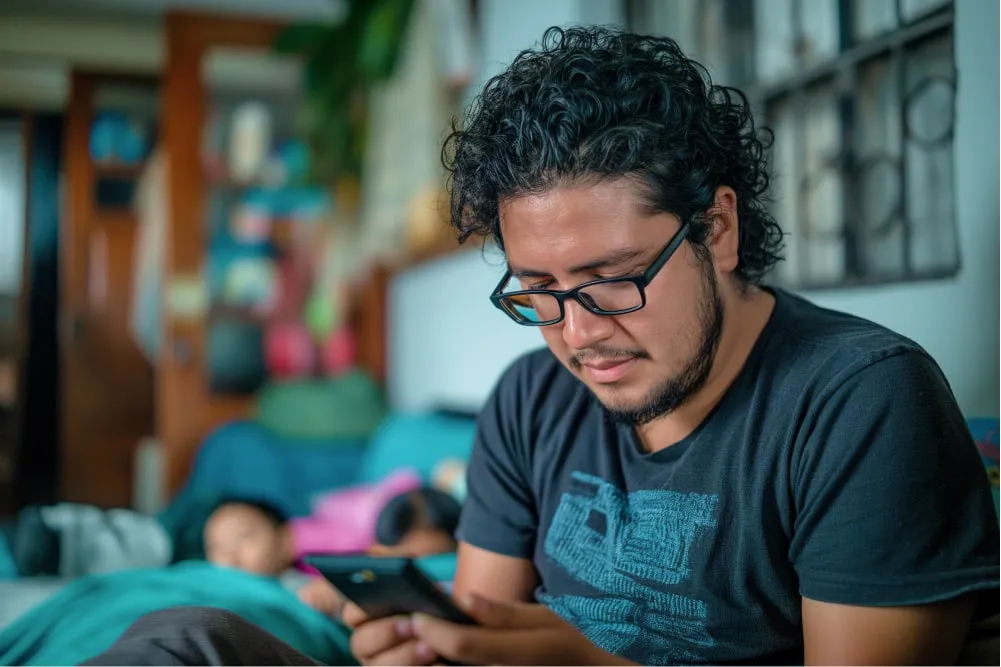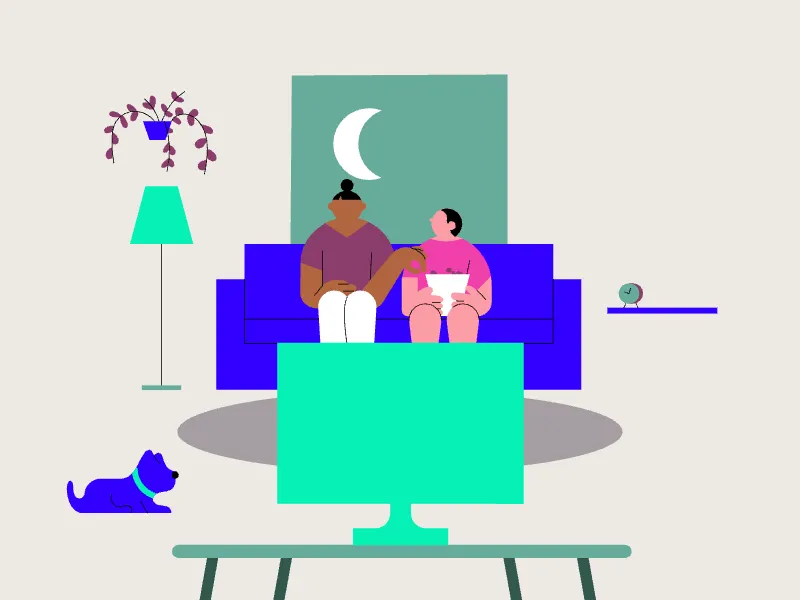Reasons for eating late at night
When you’re trying to figure out how to stop late night eating, it’s important to recognize the reasons behind this behavior so that you can begin to implement change. The three reasons below are common culprits of late night eating.
Some eating patterns, like binging and restricting, can become a cycle. Some people will find themselves late-night binge eating and then restricting calories the next day to compensate for the binge. By the end of the day, restriction and underfeeding can trigger extreme hunger that leads to more late night binge eating or other disordered eating patterns, like eating past fullness late at night.
Some people may try to restrict themselves by skipping breakfast. Not everyone is hungry in the morning, but for people who are, intentionally avoiding this meal can result in less physical and mental energy throughout the day and may increase feelings of physical and mental deprivation, which can lead to late-night hunger or late-night snacking. Most people feel better overall if they eat balanced meals throughout the day and do not ignore hunger signals or attempt to skip meals.1
At the end of the day, eating can serve as a form of comfort. Some people may eat late at night in order to relieve the stress from the day or to cope with emotions like loneliness or anxiety. One study in the European Eating Disorders Review found that eating to regulate emotions was linked to both night eating and binging.2
While some people eat in response to emotions regardless of their overall food intake, in general, physical restriction, skipping meals, and labeling certain foods as "off limits" can increase the likelihood of eating in response to difficult emotions.
How to stop late night eating may also be connected to hunger cues.
If you are not in tune with your natural hunger cues, this can help develop nighttime eating patterns like eating late at night. You may be busy or distracted during the day, not noticing when you’re hungry until it's late at night, and suddenly feel ravenous. Or, perhaps you eat a sufficient amount throughout the day but eat in response to emotional cues—rather than physical hunger cues—late at night.
A study in the journal Appetite found that people tend to be preoccupied with binge eating when they are home alone, during the evening and nighttime, and when they are around personally desirable foods and snacks.4 Based on this finding, those who tend to eat late at night may be eating in response to something other than a hunger cue.
In some cases, nighttime eating may be a symptom of binge eating disorder (BED). Many people who struggle with binge eating disorder will often consider highly rewarding or culturally vilified foods and snacks off limits, and therefore, as a result of their restrictive behavior, they are most likely to binge when around those foods.
Eating late at night can also be a symptom of night eating syndrome (NES), an eating disorder associated with elevated appetite in the evening and at night. Research has shown that people with night eating syndrome demonstrate a higher level of emotional eating, as well as reduced sleep quality.3
Tips on how to stop eating late at night
In many cases, nighttime snacking and eating late at night are linked to calorie restriction, eating for comfort, and difficulty identifying hunger cues. Given these causes of nighttime eating, specific solutions may be able to help you avoid late-night hunger or stop eating late at night, including:
- Eating healthy foods regularly throughout the day, including foods that you enjoy in all meals and snacks, and trying not to go too many hours between meals and snacks.
- Making sure that no foods are considered off-limits unless it’s due to an allergy or medical sensitivity.
- Developing alternative strategies for coping with stress or negative emotions, such as taking a walk, relaxing with a hot bath, journaling, or calling a friend.
- If possible, observe what your hunger cues feel like. Different people experience hunger differently, and commonly recognized signs of hunger, including lack of energy, a growling stomach, or a feeling of the stomach being empty, can mean you have actually waited too long to eat and have reached a state of extreme hunger.5
- Eating at the first sign of hunger cues and stopping when full.5
{{link-bank-two-column}}
How to stop late night eating: Finding help
If you employ strategies for how to stop eating late at night and find that you are still struggling with the eating pattern, it may be a sign of a deeper issue, including a potential eating disorder.
In this case, you would likely benefit from reaching out for treatment from an eating disorder specialist, who can help you develop a better relationship with food and your body as well as address the mental and emotional stressors that may be contributing to the eating disorder thoughts and behaviors.
At Within Health, we employ a multidisciplinary staff that can help you address the various physical and mental health aspects tied to late-night eating or late-night binge eating.
Get help today
In this case, you would likely benefit from reaching out for treatment from an eating disorder specialist, who can help you develop a better relationship with food and your body as well as address the mental and emotional stressors that may be contributing to the eating disorder thoughts and behaviors.
At Within Health, we employ a multidisciplinary staff that can help you address the various physical and mental health aspects tied to late-night eating or late-night binge eating. If you'd like more help or support with ending this eating behavior, reach out today.
You might be interested in
You might be interested in










%2520%2520THUMB.webp)











